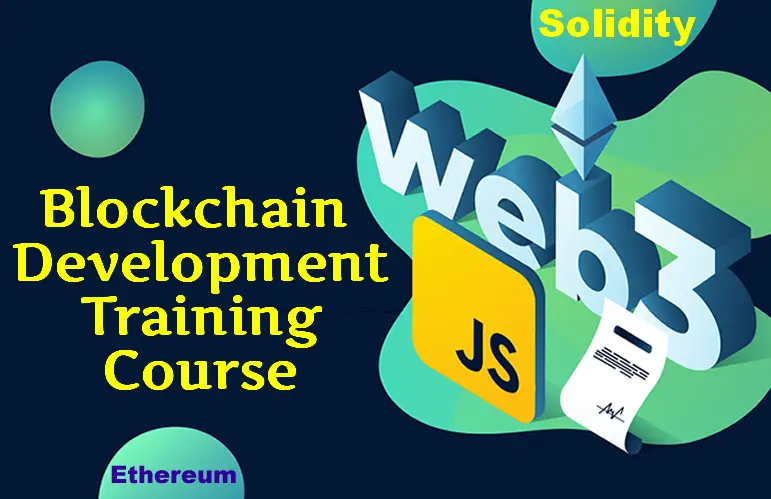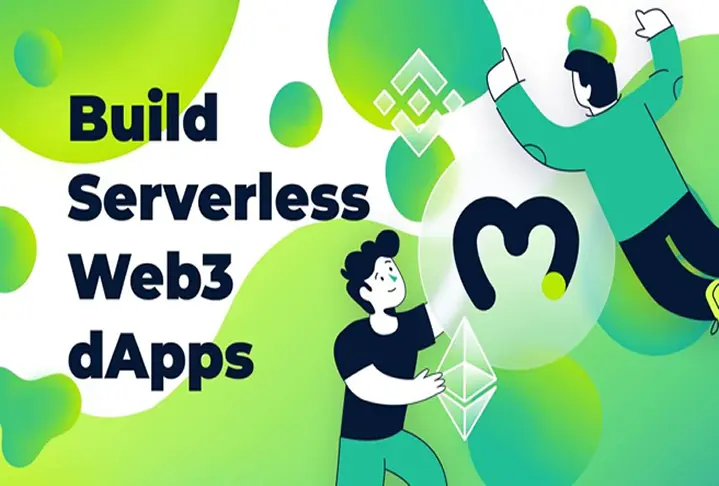Solidity, Ethereum, Web3, and Blockchain Development Training
This Solidity, Ethereum, Web3, and Blockchain Development Training in Abuja Nigeria is a practical hands-on training that takes you from the beginning to the advanced level of Solidity programming, web3, and blockchain development training. Learn Solidity from scratch, from an industry expert.
Solidity is a statically-typed curly-braces programming language designed for developing smart contracts that run on Ethereum. At the end of this blockchain course, you can use Ethereum, Solidity, and Smart Contracts to build production-ready apps based on the blockchain.
Blockchain technology is the backbone of web3. Web3 is a new internet model built on blockchain that has garnered significant attention in the past few years. The core concept behind Web3 is decentralization. Proponents expect the technology to distribute power away from internet gatekeepers, and to give developers and users more control over their data
Course overview
This is a course you will need to become a skilled Ethereum blockchain developer In Nigeria and Africa. This course will give you a full introduction into all of the core concepts related to blockchain, smart contracts, Solidity, full-stack Web3 dapps, decentralized finance (Defi), Chainlink, and more, down to advanced concepts. You’ll learn everything there is to know about advanced blockchain technologies, smart contracts, decentralized apps, be able to build and implement your own stablecoin, and much more.
WHAT YOU’LL LEARN
- Beginner-friendly introduction to the basics of blockchain and Ethereum
- Hands-on learning and demos of blockchain technologies
- Design, test, and deploy secure Smart Contracts
- Build cutting-edge applications using the Ethereum Blockchain
- Master the entire Solidity development ecosystem
- Industry insights to help you understand complex blockchain concepts
- Learn Defi (decentralized finance) and build your own stablecoin
- Learn from an actual industry expert that has worked in the crypto industry since 2018
- Gain the skills to confidently apply for jobs such as a Solidity Developer and Blockchain Developer
- Build projects that will impress employers in this rapidly growing field

Its time to boost your career
Web3 represents the next wave of the internet, built on decentralized networks that promote much greater individual control and privacy. To fuel this innovation, companies are scrambling to hire Web3 developers.
If you’re a software developer looking to upskill, Web3 could be your perfect opportunity to work at the forefront of tech innovation.
When you learn Web3 skills, you put yourself in a position to transform your career, income, and future. Our Web3 Development course trains you for a Web3 career in as few weeks.
You’ll learn Solidity fundamentals all the way to advanced blockchain technologies so that you’ll be able to go from beginner to building your own web3 projects and getting hired as a Blockchain Developer.
Blockchain engineers are in extreme demand. Almost every day they are building billion-dollar applications.
What is Web3
Web3 developers create apps that aren’t limited to a single cloud server but are instead distributed on a blockchain or decentralized P2P network that isn’t controlled by a central authority. In simpler words, Web3 is similar to how most cryptocurrencies work based on the blueprint of Bitcoin. Web3 enhances the internet as we know it today with a few other added characteristics. web3 is:
- Verifiable
- Trustless
- Self-governing
- Permissionless
- Distributed and robust
- Stateful
- Native built-in payments
In web3, developers don’t usually build and deploy applications that run on a single server or that store their data in a single database (usually hosted on and managed by a single cloud provider).
Instead, web3 applications either run on blockchains, decentralized networks of many peer to peer nodes (servers), or a combination of the two that forms a cryptoeconomic protocol. These apps are often referred to as dapps (decentralized apps), and you will see that term used often in the web3 space.
To achieve a stable and secure decentralized network, network participants (developers) are incentivized and compete to provide the highest quality services to anyone using the service.
When you hear about web3, you’ll notice that cryptocurrency is often part of the conversation. This is because cryptocurrency plays a big role in many of these protocols. It provides a financial incentive (tokens) for anyone who wants to participate in creating, governing, contributing to, or improving one of the projects themselves.
What is Ethereum?
Ethereum is a cryptocurrency much like Bitcoin, and it has been heralded as Bitcoins successor. Whereas Bitcoin currently has issues scaling with an increasing backlog of transactions, Ethereum is poised to surpass Bitcoin in performance, popularity, and value. Ethereum was created to help developers like you create applications focused around transferring money or value from one party to another.
What is Solidity?
Solidity is a programming language for writing Smart Contracts. Essentially, think of it as a way to control a bank account with code. With Solidity, we can write applications that simulate a crowdfunding campaign, a lottery, a loan, or any other type of financial instrument. Don’t be intimidated by learning ‘another’ programming language; Solidity is known to be quite similar to Javascript and exceptionally easy to pick up for anyone who has previous JS experience. This course will give you all the tools you need to master Solidity.
Web3, unlike its predecessors, Web 1.0 and Web 2.0, is based on peer-to-peer (P2P) decentralized networks, such as blockchain.
Blockchain is a hallmark building block of cryptocurrency, and Web3 is a product of both
How does web3 differ from the existing Web 2.0? While Web 2.0 is user-centric (most of the content is user-generated), Web3 has taken this approach to the next level by introducing more autonomy and keeping things more transparent and relatable. In Web3, computers are heavily involved in interpreting information on a human level.
Web3 has many additional attributes that distinguish it from Web 2.0 — it’s verifiable, self-governing, permissionless, distributed, stateless, and has built-in payment systems (cryptocurrency).
This lack of transparency and verification led to Web 2.0 containing too much content and information, most of which isn’t helpful for general users. Its security is also sub-par, which is why there are too many hackers today and a marked increase in identity theft and other cybercrimes.
Any application built on Web3 would be developed and owned by the users as they help create and maintain the app, earning their stake along the way. This is just how Bitcoin operates, as miners of the currency earn Bitcoins when they facilitate transactions through computing operations.
The apps on Web3 are called “dApps,” which is short for “decentralized applications.” You can expect to hear this term more often in the near future.
An effective Web3 developer is one who is familiar with the concept of Web3, is proficient in the relevant programming languages, and has the right tech stack to back their development work.


